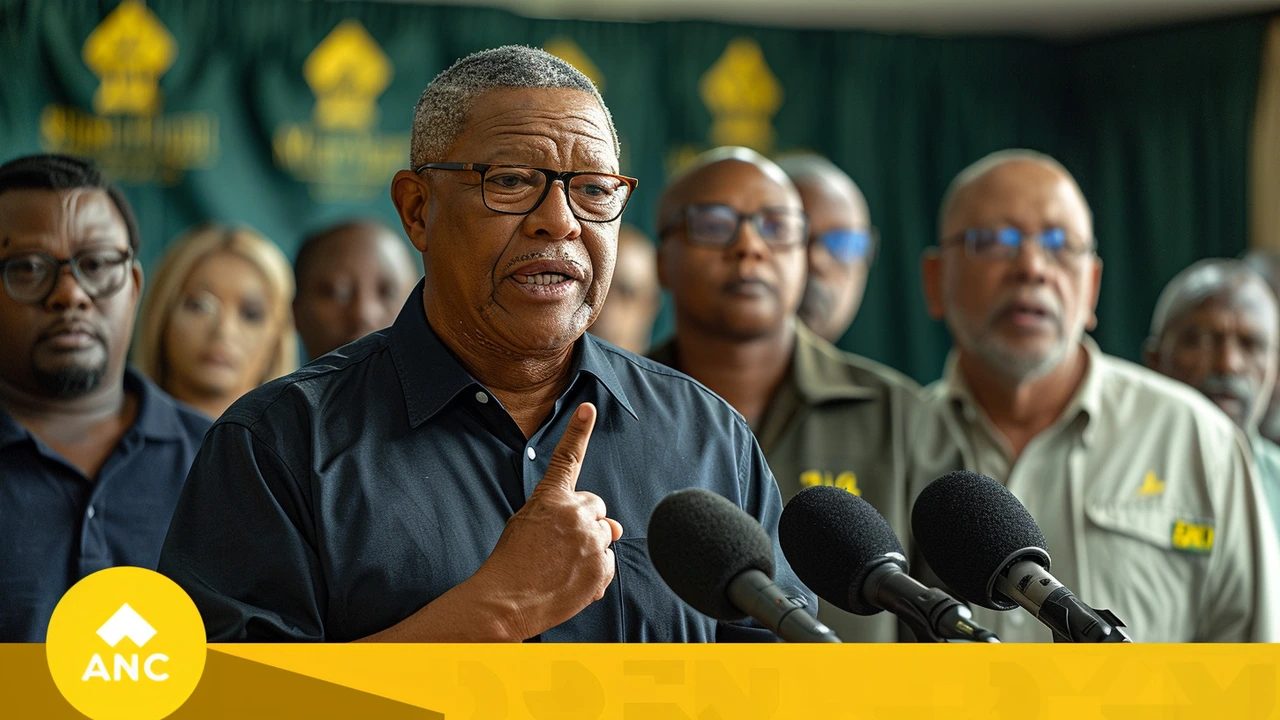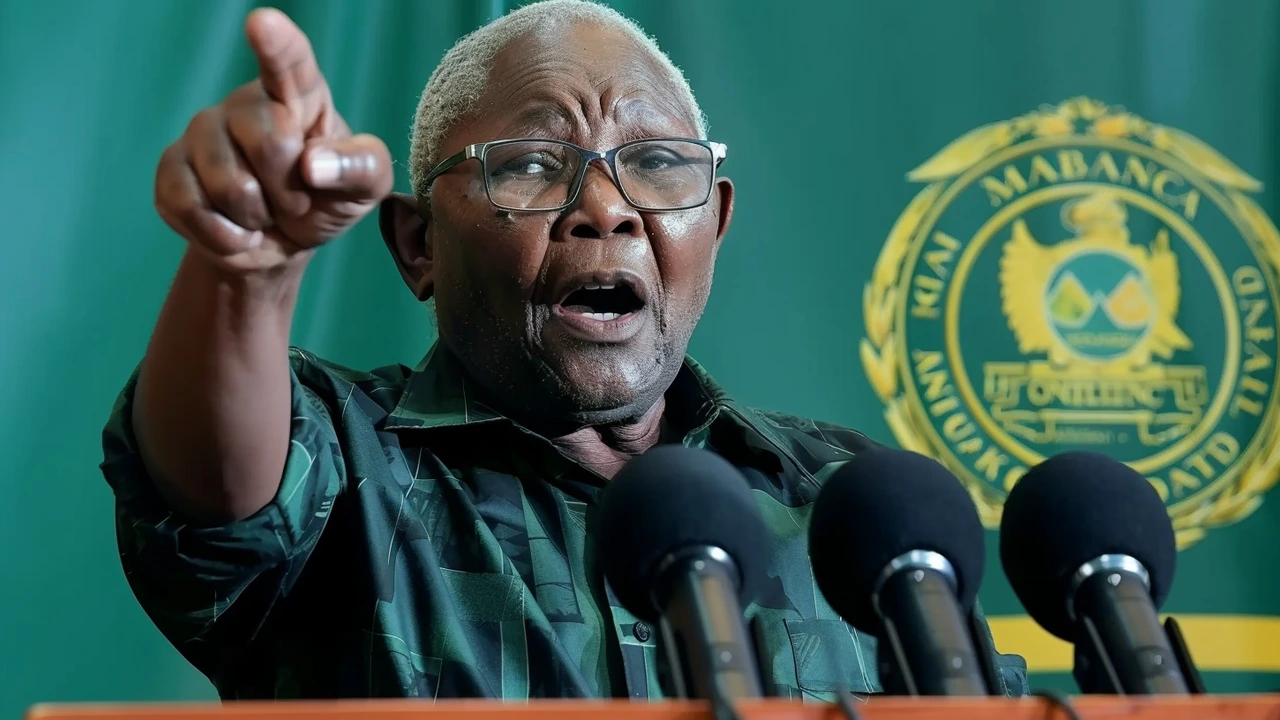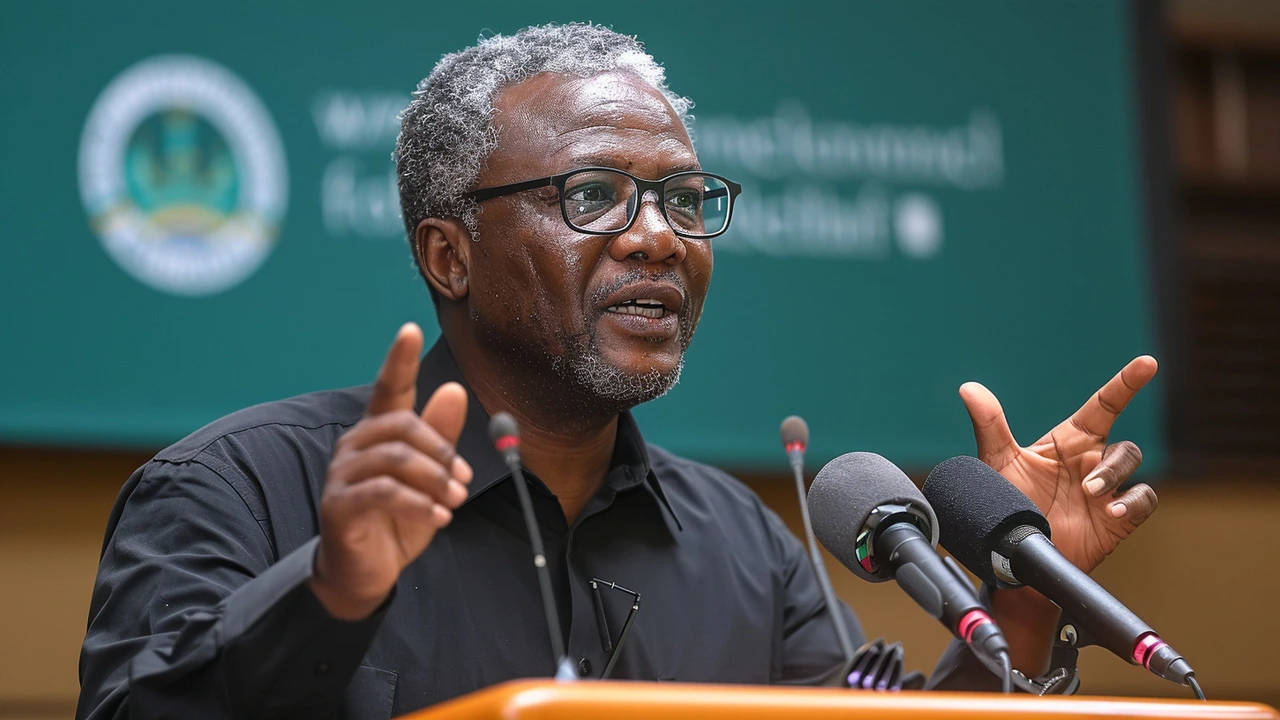In a heated exchange that has captured the attention of political watchers, MK Party spokesperson Nhlamulo Ndlhela has openly criticized ANC Secretary General Fikile Mbalula, calling him 'delusional' and 'disingenuous.' This verbal altercation erupted following Mbalula’s comments on social media, where he dismissed the MK Party's accusations of election fraud aimed at the African National Congress (ANC).
Origins of the Controversy
The tension came to a head after Mbalula took to X (previously known as Twitter) to counter allegations put forth by the MK Party. The MK Party had claimed that the ANC was engaged in election tampering, a serious charge that naturally fuelled online discourse. Mbalula retorted that these allegations were baseless and accused the MK Party of spreading rumors without any evidence to back them up.
Nhlamulo Ndlhela responded vehemently to Mbalula, stating that no 'sane person' would take his comments seriously. According to Ndlhela, the upcoming election results would serve as a humbling revelation for Mbalula and his party, implying a significant loss for the ANC. This sharp critique from Ndlhela was more than just political banter; it was a direct attack on Mbalula’s credibility and, by extension, that of the ANC as a whole.
Circulating Video Fuels the Fire
The conflict gained more traction when a video began circulating on various social media platforms. The footage allegedly showed ANC members engaged in vote rigging activities. Given the high stakes of electoral integrity, this video quickly went viral, causing public concern and discontent. However, the Independent Electoral Commission (IEC) stepped in to clarify the situation. They announced that the video in question actually depicted lawful logistical preparations and the secure storage of election materials. Despite this clarification, the damage had already been done, and the video had sown seeds of doubt among the electorate.
Jacob Zuma's Warning
Adding another layer to this intricate political saga, MK Party leader Jacob Zuma had earlier issued a cautionary statement. Zuma warned that there could be potential election rigging orchestrated by both the ANC and the IEC. He advocated that any political parties found guilty of contravening the IEC code should be removed from the ballot entirely. Zuma’s warning only amplified the controversy, putting further pressure on the involved parties to ensure election integrity.

IEC's Role and Responsibility
The IEC finds itself in a precarious position, caught between conflicting political forces. On one side is the ANC, a long-standing political giant, and on the other are smaller parties like the MK Party, which are attempting to challenge the status quo. The Commission’s primary responsibility is to maintain electoral integrity and public trust. Given the accusations of bias and fraudulent activities, the IEC has been proactive in addressing these concerns. Their clarification regarding the viral video was a crucial step in dispelling rumors, although it may not be enough to entirely regain public trust.
The IEC must ensure that all election protocols are followed to the letter to prevent any instances of vote tampering. This involves standardized procedures for handling, transporting, and storing election materials, as well as transparent communication with the public. By taking these steps, the IEC aims to uphold the democratic process and ensure that the election results reflect the genuine will of the people.
Public Perception
Public perception plays a vital role in this unfolding drama. Accusations of election rigging, whether substantiated or not, have a significant impact on voter confidence. The electorate's trust in their chosen leaders depends on the perceived fairness of the election process. Controversies like these can lead to voter apathy, where individuals feel disillusioned and may choose not to participate in the democratic process. It is imperative for all political entities to prioritize transparency and fairness to foster a healthy democratic environment.
The public's reaction to this controversy has been mixed. Some view Ndlhela’s statements as a necessary critique of a powerful entity, while others see them as mere politicking. Similarly, Mbalula's dismissal of the allegations has been both supported and criticized. The mixed reactions underscore the divided political landscape, where trust in political figures and institutions varies widely among the electorate.

The Bigger Picture
This clash is indicative of a larger trend in global politics, where accusations and counter-accusations frequently mar the electoral process. In many democracies around the world, allegations of election rigging have become almost commonplace. These accusations typically arise in highly contentious political environments, where the stakes are incredibly high for all involved parties. The situation between the MK Party and the ANC can serve as a microcosm of these broader global issues, shedding light on the challenges of maintaining electoral integrity in a polarized political landscape.
The Road Ahead
As the election season progresses, all eyes will be on the involved parties and the IEC. The MK Party will likely continue to voice their concerns and demand accountability, while the ANC will aim to defend its reputation and legitimacy. Meanwhile, the IEC will be under intense scrutiny to ensure a fair and transparent election process.
In the end, the true test will come on election day, when the votes are counted, and the results are announced. The outcome will reflect not just the choice of the electorate, but also the integrity of the electoral process. For now, the electorate must sift through the noise and make informed decisions based on facts and credible information.
This electoral controversy, with its accusations, counter-accusations, and clarifications, serves as a stark reminder of the importance of trust and transparency in any democratic process. The way forward requires all stakeholders to commit to these principles, ensuring that the democratic process remains robust and reflective of the people's will.
This situation is still unfolding, and further developments are expected in the coming days and weeks. The response from the public and other political entities, as well as any additional evidence that may surface, will likely influence the ongoing discourse. In these politically charged times, it is more crucial than ever to stay informed and critically evaluate the information presented to us.


Chand Shahzad
It’s clear that the MK Party’s push for transparency is more than just political theatre; it forces the ANC to address lingering doubts about its electoral conduct. By calling out Mbalula’s remarks, Ndlhela is essentially demanding accountability from a party that has ruled for decades. The rhetoric may sound harsh, but it serves as a reminder that no political entity should be above scrutiny. The IEC’s clarification on the video, while helpful, does not automatically erase public suspicion. Moving forward, both parties need to engage in open dialogue backed by verifiable data to restore voter confidence. This is the only route to a genuinely democratic process.